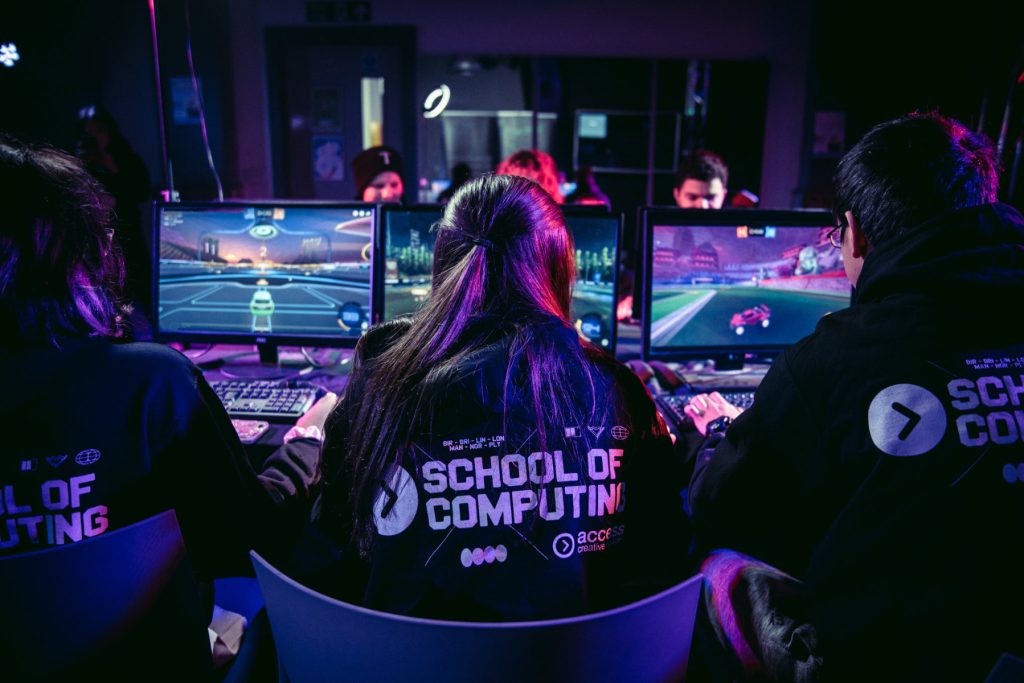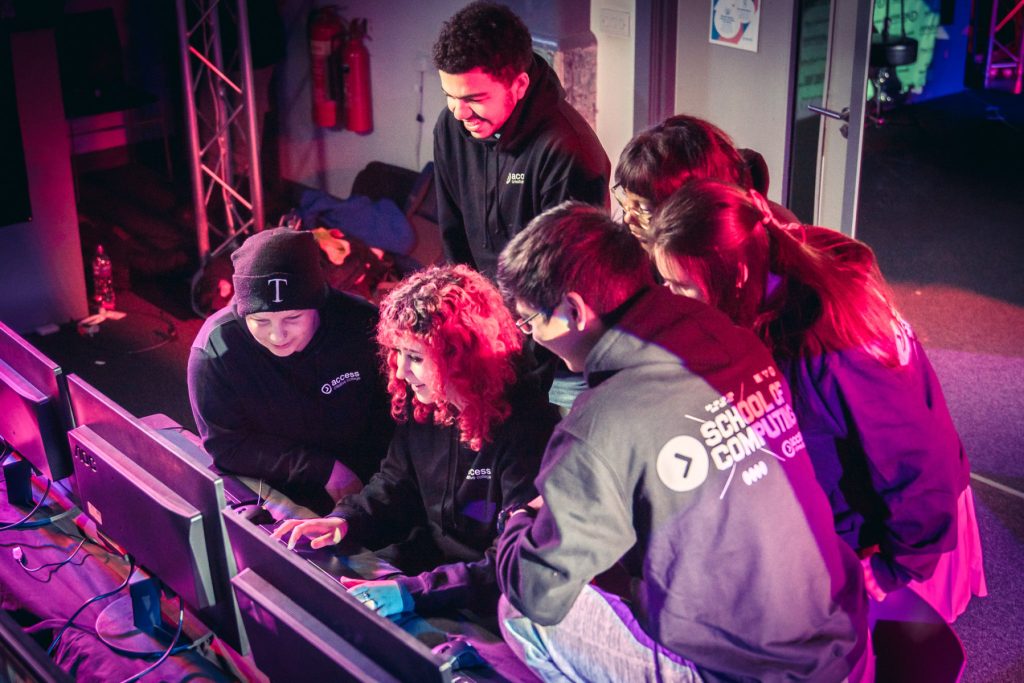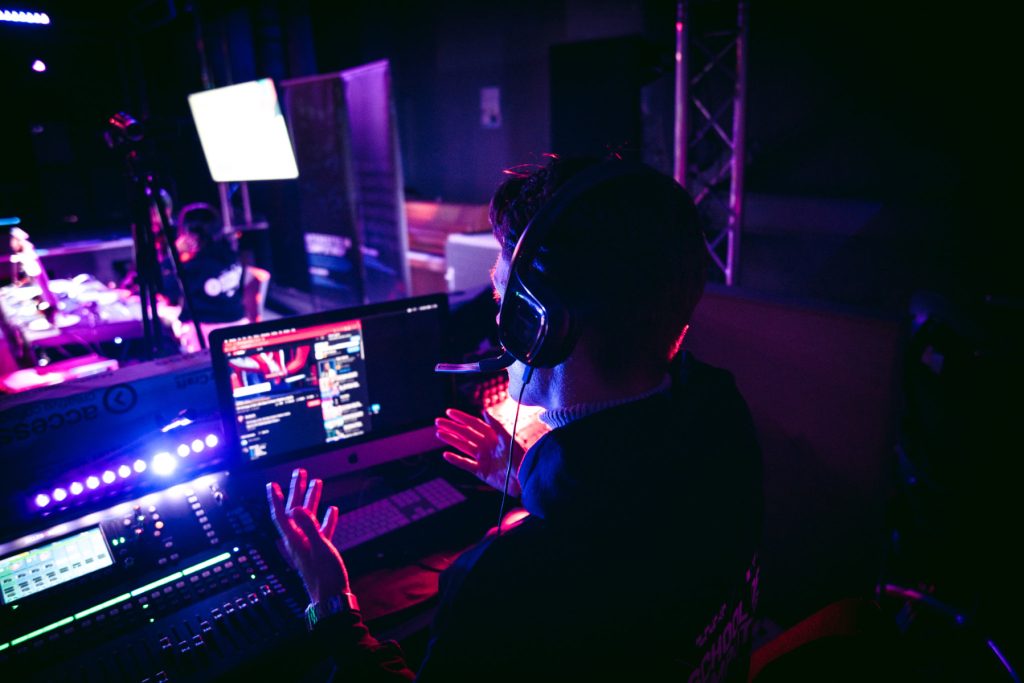
Esports’ integration into education is perhaps one of the most widely discussed topics by industry stakeholders at the moment. This is largely down to opinions over how esports should be utilised in education, and at what level the concept of esports (and the industry it has created) should be taught.
By discussing the pros and cons of each level, the hope is that potential students find the right level of education for them if they want to pursue esports as a potential career path. Moreover, breaking down esports qualifications into different levels provides a better grasp of the various opportunities available as opposed to painting positive and negative remarks for all courses with one brush.
In collaboration with UK educator Access Creative College, Esports Insider takes a look at the many different ways esports can be taught in the educational pyramid — ranging from esports degrees to related external qualifications.
Degree level
In the UK, the highest level in which a qualification in esports can be gained is through university degrees. Esports degrees are arguably the most discussed type of esports qualification as well, with online debates discussing the true value of esports degrees within the current ecosystem.
The university qualification follows a similar structure to other degrees, with these qualifications typically focusing on the inner workings of the esports industry. Whilst the concept of an esports degree is relatively new (the first was launched in 2018 by Staffordshire University), there are already variations in the type of degrees that are available. Some qualifications provide an overarching view of the esports sector, teaching a wide range of skills such as marketing, social media, event management and production in the competitive gaming industry.
However, there are also specifically tailored esports degrees for those who want to focus on certain areas of the esports industry. These include production, coaching and management. It’s also worth noting that most, but not all, offer a foundation year alongside the three-year qualification.
As with all esports qualifications, research into a course’s modules and content must be done to ensure it provides value to the student, none more so than esports degrees given the length and price of the courses. As with all degree programmes, going into them does not guarantee a job in the chosen field, hence why it is also important to look at the transferable skills that could be gained.

Diplomas and BTECs
Diplomas are the most diverse range of qualifications in the UK and can range from level 1 (GCSE equivalent) to level 8 (Doctorate equivalent). For esports specifically, some colleges offer esports at level 2 (for a UAL Level 2 Award and Diploma in Creative Media Production and Technology) while there are also Level 3 BTEC Extended Diplomas and Higher National Diplomas available across the country.
Diplomas provide great opportunities for individuals to study the esports industry at various levels of the educational system. Ultimately, the biggest benefit is that the integration of esports diplomas in education allows students to develop esports industry-focused skills at a level that suits them.
Similarly to degrees, esports diplomas range from providing a general overview of the sector to delving deeper into a specific field. At Access Creative College, the institution offers a two-year Level 3 Extended Diploma in Esports Management (which is equivalent to three A-levels). This course, currently accepting applications in Bristol, London and Plymouth for September 2024, breaks down a wide array of esports sectors such as coaching, event management, production and marketing all whilst providing a greater understanding of the industry at large.
To further build the gap between esports and education, Access Creative College has also teamed up with UK-based esports organisation Fnatic to jointly organise webinars and invite industry guest speakers.
“Our esports management course largely focuses on giving students an understanding of the industry as a whole. We are developing a range of skills within media technology, the esports business and careers, as well as player tactics and team coaching,” stated Grant Topping, Access Creative College’s Esports Course Leader for its Norwich branch.
“It’s a very small amount of people who make it as a player, and there is obviously a smaller amount of them coaching. So we’re giving more of an opportunity to those who want to go into the industry, a wider range of tools to get in behind the scenes first.”
Access Creative College’s course is under the BTEC category, another widely publicised method of esports education in the UK. These qualifications have risen in prominence since 2020 when the British Esports Federation teamed up with education company Pearson to launch the first Esports BTEC. BTEC’s are notably a form of qualification that focus on incorporating industry skills and practical learning into their syllabus.

High School esports qualifications
One of the most underdeveloped esports education sectors is currently at the high school level of education. However, this doesn’t mean that opportunities do not exist. Pearson once again offers a level 2 BTEC qualification in esports. Additionally, in 2024, the Scottish Qualifications Authority (SQA) recently launched a National Progression Award (NPA) in esports for schools and colleges in Scotland.
It is worth noting that whilst Level 2 or lower qualifications are less frequent in the UK, the presence of esports is still felt in schools through the development of esports societies and clubs. These clubs are primarily used to provide social opportunities to students through competitive gaming.
External esports qualifications
The final section is dedicated to qualifications that fall outside of the education system. Whilst these are not taught in institutions, external esports qualifications allow individuals the opportunity to gain valuable esports industry-focused skills.
Notably, in 2021, the Duke of Edinburgh’s Award (DofE) added esports to its programme. This allowed individuals to select esports as their DofE Skills activity. In recent years, there has also been a growing emphasis on training opportunities for esports coaches. This has coincided with the launch of the International Federation of Esports Coaches and the Esports Coaching Academy, which aim to provide structured approaches to learning coaching skills and gaining coaching-related qualifications.
To conclude, there are a range of opportunities that have become available if esports through education is an appealing venture. However, making sure that research is done into each qualification is crucial to getting the most out of a course — and what comes after it.
This article is supported by Access Creative College




